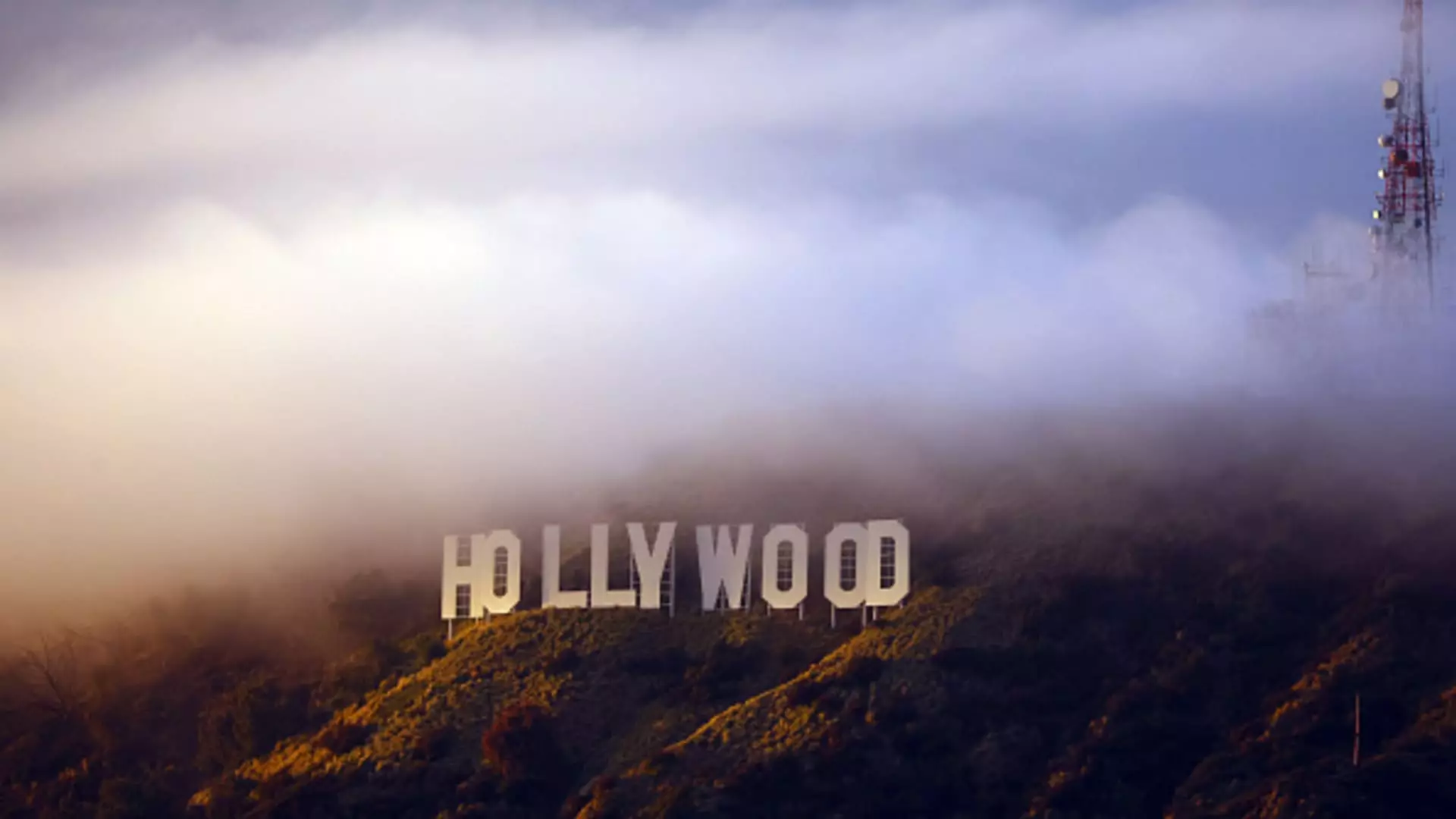The entertainment industry is often viewed as a world of glitz and glamour, yet it operates within a complex web of economic realities. Recently, President Donald Trump’s unilateral trade actions have sparked concerns about the ramifications for Hollywood’s extensive collaboration with Canada, a country often dubbed Hollywood North. For years, Canada has served as an integral production hub for countless American films and television shows, providing appealing tax incentives that make it a desirable alternative to domestic shooting locations. The question now arises: how will fluctuating trade dynamics affect this cherished partnership?
The introduction of tariffs on Canadian goods—specifically a 25% tariff that many in the industry fear could be just the start—poses a significant threat to this relationship. Industry insiders are anxious about potential retaliatory measures from Canada that could undermine the tax structures supporting studios and the talent workforce. Such repercussions could manifest as reduced tax credits or, even worse, restricted access to production facilities. The implications of this could ripple through Hollywood, obscuring the financial landscape for future projects.
Economic Interdependencies and Immediate Reactions
In this intricate dance between two neighboring countries, Canadian Prime Minister Justin Trudeau has signaled that Canada will respond with counter-tariffs. His assertion that “our response will also be far-reaching” makes it clear that both parties are prepared to engage in a tit-for-tat economic battle. This raises an interesting dilemma: while the U.S. may aim to protect its manufacturing base through tariffs, the collateral damage to the entertainment sector could outweigh any potential benefits.
Major studios rely heavily on the Canadian infrastructure for aspects of production due to its skilled labor force and favorable conditions. Though many production sets in America utilize locally sourced materials, a significant share of imported costumes, special effects, and equipment still flows across borders. The difficulty lies in the fact that as tariffs push costs higher, these production budgets could quickly become strained, hindering both creativity and financial viability.
Another flaw in this narrative emerges when considering the consumer landscape. The ongoing tariffs and the subsequent inflation in household goods adversely affect disposable incomes. Industry experts worry that as everyday items become costlier, tickets to the latest blockbusters could easily fall off consumers’ priority lists. The notion of sacrificing a night out at the movies for essential expenditures is a real concern within the industry; after all, it would hit studios where it hurts the most—the box office.
Post-pandemic recovery for Hollywood has been stymied by a slew of challenges, including labor strikes and a shifting media consumption landscape. If suddenly, discretionary spending is curtailed because of increased economic pressures stemming from tariffs, the already fragile recovery trajectory could be jeopardized. This scenario would not only limit audience reach but also erode brand loyalty among filmgoers who might opt for cost-efficient entertainment options instead.
Despite these challenges, many experts assert that Hollywood possesses a kind of resilience rooted in its adaptability and appeal. The industry has experienced shifting tides before and has emerged with new innovative practices each time. Studios are likely to refine their budgeting approaches to offset tariff impacts, seeking alternative materials or investing in local talents more than ever.
Looking toward the future, Hollywood aims to build on its box office successes by investing in blockbuster ideas projected for release in the coming years. The hope is that even amidst heightened costs and economic uncertainty, a series of captivating narratives and adventure films will draw audiences back into theaters. Ultimately, successful navigation of the current trade climate will depend significantly on consumer behavior, industry innovation, and the very nature of storytelling itself.
The intersection of trade wars and the film industry presents a conundrum that Hollywood must thoughtfully address. For all its glamour, the reality remains that broader economic factors could tip the scales and reshape the future landscape of entertainment.

